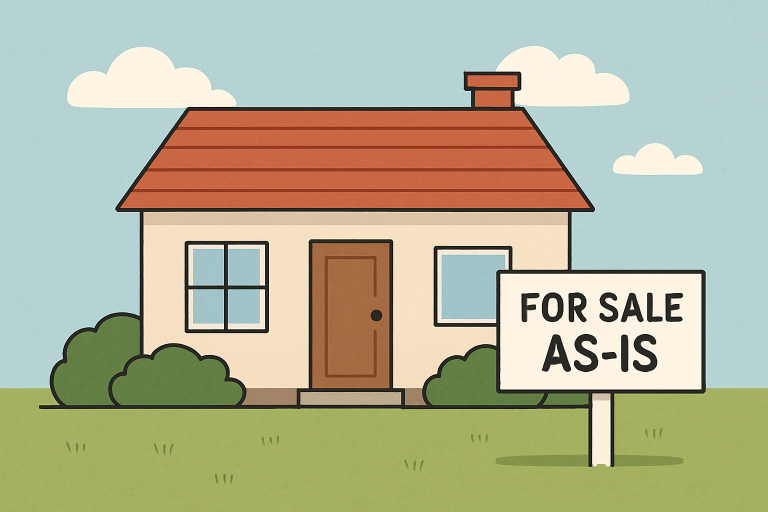How to Choose the Perfect Vacation Home for Your Needs
Dreaming of escaping to your slice of paradise? You’re not alone in wanting a vacation home that serves as both a personal retreat and a potentially profitable investment. The vacation rental market shows promising signs ahead, with demand expected to outpace supply by 2025 (AirDNA). However, choosing the right property requires more than just falling in love with a beautiful view.
From understanding your financial capacity to evaluating rental potential, there’s a strategic process that can make the difference between a smart investment and an expensive mistake. Let’s explore how to navigate this exciting journey and find a vacation home that truly fits your needs and goals.
Understanding Your Location Priorities
Property searches, you’ll want to establish what type of location aligns with your vacation home needs. Different regions offer varying advantages, from mountain retreats to beachfront properties, each with unique characteristics and market dynamics.
Mountain Communities and Luxury Living
Mountain locations often provide year-round appeal, especially in regions known for their natural beauty and outdoor activities. The Mountain West region of Idaho, for instance, has emerged as a destination for those seeking luxury living integrated with nature.
Tributary gives an elegant approach to mountain community living, where residents can enjoy both sophistication and natural surroundings. These communities typically feature amenities like golf courses and scenic river views, creating an environment that appeals to both personal enjoyment and rental guests.
Proximity and Accessibility Factors
When evaluating any location, consider how easily you and potential renters can access the property. A vacation home that’s too remote might limit your usage and rental potential, while one that’s too close to urban areas might not provide the escape you’re seeking. Look for locations with reliable transportation links and necessary infrastructure while maintaining the peaceful atmosphere you desire.
Local Market Dynamics
Each region has its rental market characteristics. Some areas see strong year-round demand, while others are heavily seasonal. Research local tourism patterns, average rental rates, and occupancy statistics to understand what you might expect from your investment.
Financial Planning for Your Purchase
Smart financial planning forms the foundation of any successful vacation home purchase. This vacation home buying guide emphasizes the importance of approaching this investment with a clear understanding of your budget and ongoing costs.
Establishing Your Budget Parameters
Financial experts typically recommend allocating no more than 28% of your gross monthly income toward housing expenses when buying a vacation home. This rule helps ensure you won’t overextend yourself financially. Remember, you’ll be managing two properties, so maintaining financial flexibility is crucial.
Down Payment and Financing Considerations
Most lenders require a higher down payment for vacation homes compared to primary residences. Securing a favorable mortgage rate with a 20% down payment is often recommended, though some buyers choose to pay cash to avoid financing complications. Consider your liquidity needs and other investment opportunities when deciding between cash and financing.
Hidden Costs and Ongoing Expenses
Beyond the purchase price, vacation homes come with additional expenses that can significantly impact your budget. Property taxes, insurance, maintenance, utilities, and management fees all add up. In popular vacation destinations, these costs can be substantially higher than in residential areas.
Evaluating Property Features and Amenities
The best vacation homes balance personal enjoyment with broad rental appeal. Understanding what features matter most will help you choose vacation home options that serve both purposes effectively.
Size and Layout Considerations
Your property’s size should align with your intended use and target rental market. A three-bedroom home might work perfectly for your family while also appealing to small groups of renters. Consider flexible spaces that can serve multiple purposes and layouts that promote both privacy and social interaction.
Essential Amenities for Success
Modern vacation homes often include reliable Wi-Fi, updated kitchens, and comfortable outdoor spaces. Air conditioning, heating systems, and quality appliances aren’t just nice-to-haves – they’re essential for guest satisfaction and positive reviews. Consider amenities that set your property apart without breaking your budget.
Maintenance and Management Requirements
Some properties require more upkeep than others. A home with extensive landscaping or a pool might be appealing, but it also means higher maintenance costs and more management complexity. Balance your desire for attractive features with realistic expectations about ongoing care requirements.
Rental Potential Assessment
If you’re considering rental income as part of your vacation home investment, understanding the rental market is essential. These vacation property tips can help you evaluate potential returns and make informed decisions.
Market Research and Competition Analysis
Study similar properties in your target area to understand pricing, occupancy rates, and what makes some rentals more successful than others. Look at their amenities, pricing strategies, and guest reviews to identify opportunities and potential challenges.
Seasonal Demand Patterns
Most vacation rental markets have seasonal fluctuations. Understanding these patterns helps you set realistic income expectations and plan for periods of lower occupancy. Some locations offer year-round appeal, while others might see dramatic seasonal swings.
Platform Strategy and Marketing
Consider which rental platforms serve your target market best. While Airbnb holds a significant market share with 60% of its users being millennials, other platforms might better serve your specific property type or location. Don’t overlook the growing trend of direct bookings, as rising platform fees are encouraging guests to seek alternatives.
Long-Term Planning and Exit Strategy
Successful vacation home ownership requires thinking beyond the initial purchase. Consider how your needs might evolve and what factors could influence your property’s future value.
Personal Use vs. Investment Balance
Your vacation home should serve your personal needs while maintaining its investment potential. This balance might shift over time as your family situation changes or as market conditions evolve. Properties that appeal to both personal use and rental guests often provide the most flexibility.
Market Trends and Future Outlook
The vacation rental market is expected to see supply growth match demand in 2024, with demand outpacing supply by 2025. This trend suggests that well-chosen properties could see increased value and rental potential. However, local regulations and economic factors can significantly impact these projections.
Maintenance and Upgrade Planning
Plan for regular maintenance and periodic upgrades to keep your property competitive. What seems modern today might need updating in five years. Budget for these improvements and consider how they might affect your property’s appeal and value.
Questions About Vacation Home Ownership
1. What does Dave Ramsey say about buying a vacation home?
One of the most important factors to consider when you’re thinking about buying a getaway place is your finances. We’d never advise anyone to go into debt to buy a vacation property. If you don’t have the cash to pay for a second home, don’t buy it!
2. What Is the Rule of Thumb for Buying a Vacation Home?
Ideally, allocate no more than 28% of your gross monthly income toward housing expenses when buying a vacation home. Secure a favorable mortgage rate with a 20% down payment, if possible, and account for additional costs like taxes and ongoing maintenance.
3.How do I know if a vacation home is right for me?
Consider your financial stability, how often you’d realistically use the property, and whether you’re prepared for the responsibilities of property management. If you can’t afford to lose money on the investment, you might want to wait.







